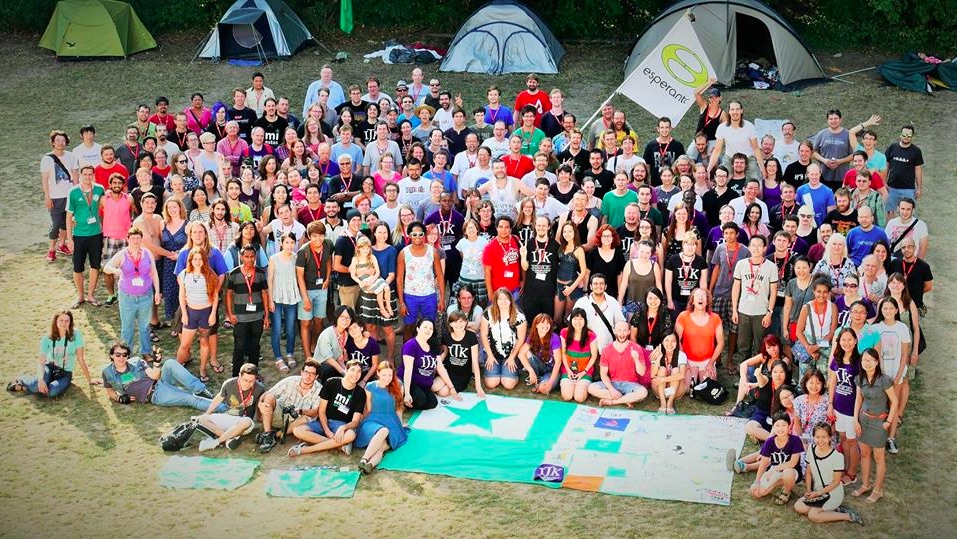TOLERANCE AND SOLIDARITY .
Special to CPNN by Klara Ertl
From the 2d to 9th of August 2015, the 71st International Youth Congress of Esperanto (a.k.a. “Internacia Junulara Kongreso” or IJK) took place in the city of Wiesbaden, Germany. There were 300 participants from 35 countries, mainly young adults but also children, teenagers and older adults. They all had one common language: Esperanto.

Esperanto was initiated as an international bridge language with no country to be attached to, simple and easy to learn, and fair to everyone. Its initiator, L. L. Zamenhof from Poland, grew up in a country torn by cultural conflicts. The idea of peace was his chief motivation to dedicate all his efforts to this ambitious project, and peace still lies at the core of the Esperanto movement worldwide.
During one week, in and around the youth hostel of Wiesbaden, participants gave presentations and courses on various subjects, played music, sports and games, danced, talked, joked, debated and organized, bought and sold Esperanto books, magazines and music. They shared their knowledge, their skills and above all, their friendship. Young or old, poor or rich, and no matter which of the five continents they were from and how proficient they were at Esperanto – everyone was given a chance to express themselves, and listened to. Equality was also explicitly promoted: For example, some of the participants made an ongoing initiative to inform about and promote acceptance for transgenderism. There is a growing tendency among Esperanto speakers to add a new, gender-neutral pronoun (“ri”) to the traditional pronouns for male (“li”) and female (“ŝi”).
In 1985, at its General Conference in Sofia, UNESCO acknowledged the results obtained by the use of Esperanto in mutual understanding between peoples, and its potential for contributing to it in the future. It also invited all its Member States to introduce the study of Esperanto in schools and institutions of higher education. Though this is rarely done, it can easily be learned by informal means, especially through the Internet.
The next IJK will take place next summer in Wroclaw, Poland. But Esperanto meetings take place all year, and no matter where in the world, they create a space for cultural exchange, openness, and equality.
—-
Some links:
Homepage of TEJO (Worldwide Esperanto Youth Organization), which organizes this congress: www.tejo.org
Information about Esperanto: www.esperanto.net
Learning Esperanto: www.lernu.net
Main Esperanto Facebook group: www.facebook.com/groups/esperanto.grupo/